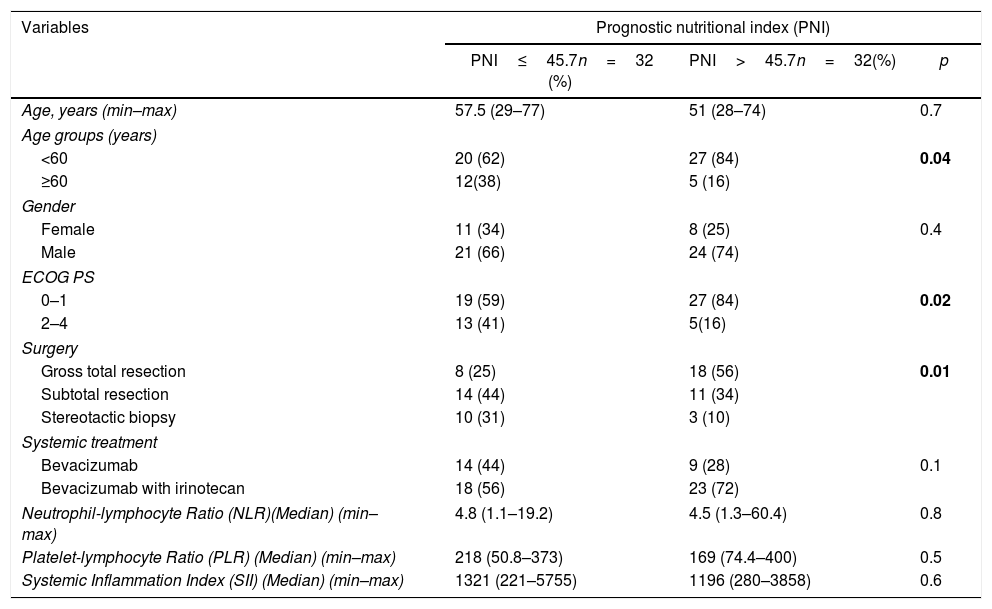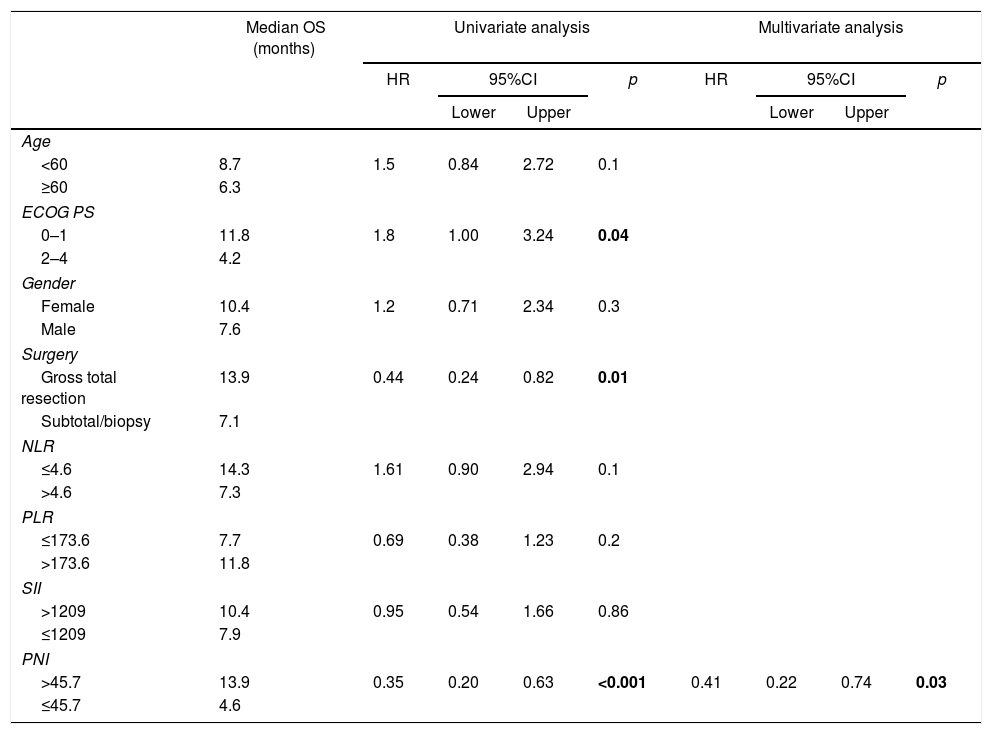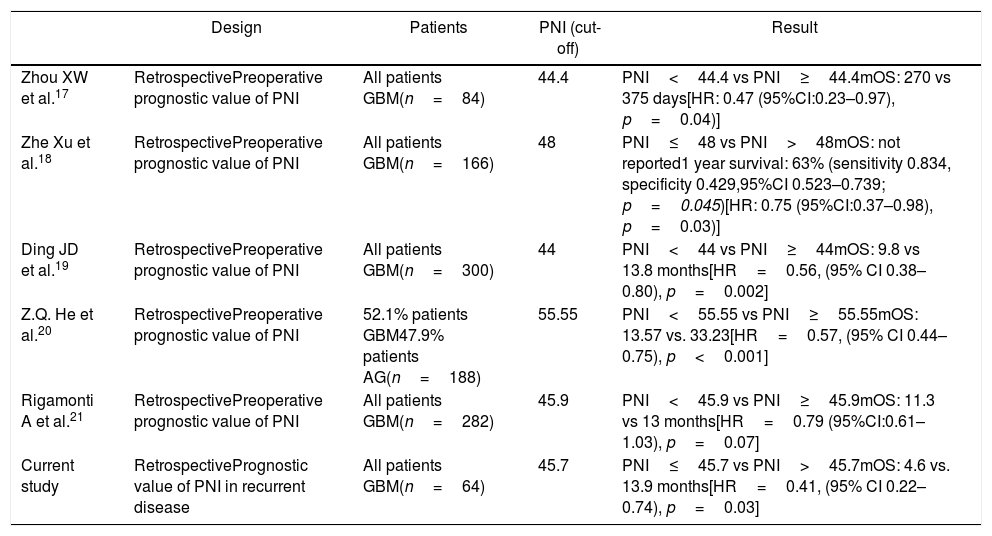Primary brain tumors are relatively rare malignancy, with high-grade gliomas (glioblastoma multiforme and anaplastic gliomas) are the most common types. We aimed to evaluate the prognostic value of Prognostic Nutritional Index (PNI), which is calculated by lymphocyte count and albumin, in recurrent glioblastoma patients treated with systemic treatment.
MethodsData of 64 patients with recurrent glioblastoma who received systemic treatment and followed in our clinic between 2012 and 2018 was retrospectively collected and analyzed. PNI was calculated as: [(10×serum albumin (g/dL))+(0.005×total lymphocyte count)]. Patients were categorized according to the median PNI value. We investigated the prognostic role of PNI groups, and survival outcomes.
ResultsMedian value of PNI was 45.7, and median follow-up duration was 9 months (1–68 months). Median overall survival (OS) was 7.9 months (95%CI: 5.5–10.4). Median OS was significantly longer in patients with PNI>45.7 compared to patients with PNI≤45.7 (13.9 months (95%CI: 10.5–17.4), and 4.6 months (95%CI: 2.5–6.8), p<0.001, respectively). In multivariate analysis, PNI was found to be an independent prognostic factor for OS [HR:0.41 (95%CI:0.22–0.74), p=0.03)].
ConclusionIn our study, the PNI was found to be an independent prognostic biomarker in patients with recurrent glioblastoma, but further prospective trials are necessary to validate its prognostic role.
Los tumores cerebrales primarios son neoplasias malignas relativamente infrecuentes, siendo los gliomas de alto grado (glioblastomas multiformes y gliomas anaplásicos) los tipos más comunes. Nuestro objetivo fue evaluar el valor pronóstico de Prognostic Nutritional Index (PNI), que se calcula mediante el recuento de linfocitos y albúmina en los pacientes con glioblastoma recurrente tratados con terapia sistémica.
MétodosSe recabaron y analizaron retrospectivamente los datos de 64 pacientes con glioblastoma recurrente que recibieron tratamiento sistémico, y a quienes se realizó seguimiento en nuestra clínica entre 2012 y 2018. Se calculó PNI como: (10×albúmina sérica [g/dl]+0,005×recuento linfocitario total). Se categorizó a los pacientes con arreglo al valor medio de PNI. Estudiamos el papel pronóstico de los grupos PNI, y los resultados de supervivencia.
ResultadosEl valor medio de PNI fue de 45,7, siendo la duración media del seguimiento de 9 meses (1-68 meses). La supervivencia global (SG) fue de 7,9 meses (IC 95%: 5,5-10,4). La SG media fue significativamente más alta en los pacientes con PNI>45,7 en comparación con los pacientes con PNI≤45,7 (13,9 meses, IC 95%: 10,5-17,4 y 4,6 meses, IC 95%: 2,5-6,8; p<0,001, respectivamente). En el análisis multivariante, se encontró que PNI era un factor pronóstico independiente de la SG (HR: 0,41; IC 95%: 0,22-0,74; p=0,03).
ConclusiónEn nuestro estudio, encontramos que PNI era un biomarcador pronóstico independiente en los pacientes con glioblastoma recurrente, aunque son necesarios más estudios prospectivos para validar su papel pronóstico.
Article

If it is the first time you have accessed you can obtain your credentials by contacting Elsevier Spain in suscripciones@elsevier.com or by calling our Customer Service at902 88 87 40 if you are calling from Spain or at +34 932 418 800 (from 9 to 18h., GMT + 1) if you are calling outside of Spain.
If you already have your login data, please click here .
If you have forgotten your password you can you can recover it by clicking here and selecting the option ¿I have forgotten my password¿.













